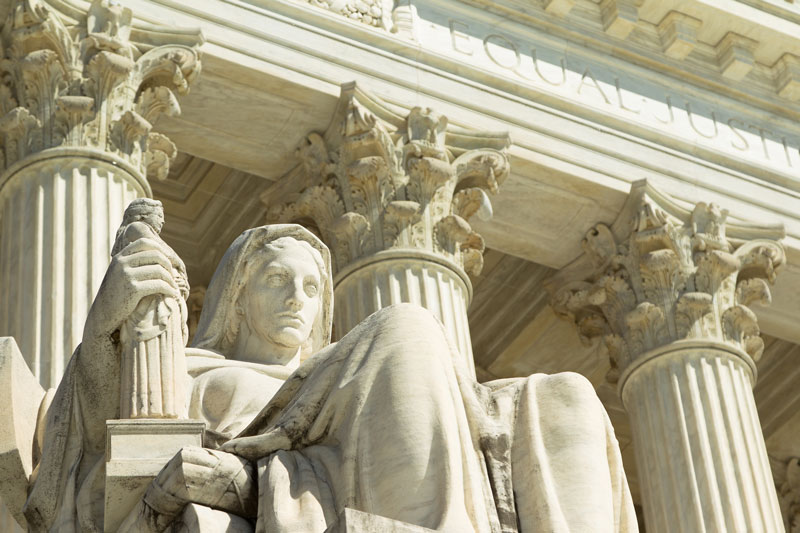The Supreme Court is considering a major case that was concerning the Fourth Amendment, discussing privacy in the digital age and how to apply established legal rules to the rapid and ever-dynamic technology.
The nine justices deciding the case could potentially end up by providing a proper framework for the federal government’s surveillance authority going forward, and some privacy advocates say that the outcome could possibly impact several other issues such as the digital medical records and Google search data, as per news reports.
In the case under consideration, Trump administration’s stance is that the government does not need any warrants to seek digital data from the cell phones that may reveal a user’s location. Several of the justices were seen struggling with this view and expressed their own concerns.
The Deputy Solicitor General, Michael R. Dreeben also argued before the Supreme Court that the individuals have already diminished privacy rights when it comes down to information that they have already voluntarily provided to a third party, including a phone company.
Several of the justices also pushed back on Dreeben’s arguments for various other reasons.
“Most Americans, I still think, want to avoid Big Brother,” Justice Sonia Sotomayor had said. “They want to avoid the concept that government will be able to see and locate you anywhere you are at any point in time.”
Sotomayor said that cell phones have become an “appendage” for all people today and she also noted how mobile devices can be pinged in bedrooms and doctor’s offices.
Other justices are worried about how they should differentiate and make a line in cases that are concerning the sensitivity of data and what type of the digital information may trigger the Fourth Amendment protections.
The Fourth Amendment protects “the right of the people to be secure in their persons, houses, papers and effects, against unreasonable searches and seizures.”
Most of the courts have ruled that, since the information received from the cell-site location has already been provided to phone the companies or other third parties, there is already a diminished privacy interest.
“This case is the first chance to start to set reasonable limits applicable to requests for these kinds of digital-age records by making clear that a warrant will sometimes be required,” American Civil Liberties Union lawyer, Nathan Freed Wessler had said in opposition to the government’s stance.
The controversy over the case arose after a chain of nine armed robberies occurred at the Radio Shack and T-Mobile stores in Michigan and Ohio. One of these robbers, who had confessed to the crime, provided the FBI with his cell phone number and number of the others who had participated in the scheme.
Based in part on the location data, Carpenter was convicted of the aiding and abetting the crimes.
Lawyers for Carpenter had argued that the “reasonable grounds” standard necessary to reveal the cell-site evidence was too law of a bar, and instead said that the Fourth Amendment requires the government to first obtain an official search warrant based on the higher standard of “probable cause.”
“Allowing law enforcement to obtain such records free and clear of any Fourth Amendment restrictions would dramatically shrink the amount of privacy that people enjoyed from the time of the Framing through the dawn of the digital age,” Wessler had argued in this case.
Nineteen of the states have filed for a brief in support of the government, saying that the cell-site data is very general in nature. Lawyers for the states acknowledge, however, that many other cases concerning “more sensitive data” could be addressed in more depth in the nearing future.























